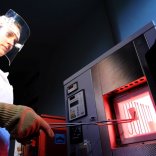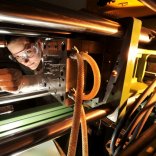Programme Description
The programme of Advanced materials will be focussed on advanced (functional and structural gradient, nanostructural and smart) ceramic materials, polymers, metals and composites. Basic research will be focussed on advanced methods of synthesis (or preparing) of advanced materials and multifunctional composites with polymeric, ceramic, silicate or metallic matrixes, characterization of their structures on various dimensional scales and quantifying structure-property-function relationships on the various structural levels Combined research in the field of advanced ceramic materials, polymeric composites and metallic composites will be focussed on applications in medicine, electrical engineering, power engineering, engineering, chemistry and building engineering.
Main Goals
The research results will head towards new materials for medical applications (surgery and dental implants, bioactive coatings), engineering applications (components, tools, high-temperature machinery and devices), electrochemical applications (oxygen and hydrogen membranes and membrane reactors, SOFC), electronic applications (dielectrics, ferroelectrics, piezoelectrics, semiconductive ceramics and polymers), catalytic applications (homogeneous and heterogeneous catalysts), energy applications (advanced refractory steels, intermetallic materials, superalloys) and building applications (self-cleaning paints, antibacterial surfaces).
Research Groups
- Advanced Ceramic Materials
- Cybernetics in Material Science
- Advanced Polymers and Composites
- Advanced Metallic Materials and Metal Based Composites













